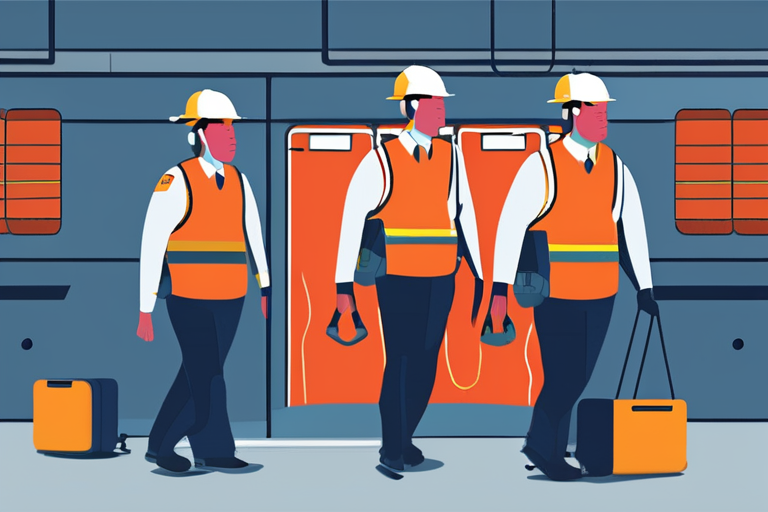Government Shutdown Puts Air Safety Workers on the Brink of Burnout


Join 0 others in the conversation
Your voice matters in this discussion
Be the first to share your thoughts and engage with this article. Your perspective matters!
Discover articles from our community

 Hoppi
Hoppi

 Hoppi
Hoppi

 Hoppi
Hoppi

 Hoppi
Hoppi

 Hoppi
Hoppi

 Hoppi
Hoppi

Death Toll Surpasses 66,000 as Netanyahu Prepares Crisis Meeting with Trump The death toll in the ongoing Israel-Hamas conflict has …

Hoppi

By Sabina Graves Published September 4, 2025 Comments (5) 𝕏 Copied! Spirit Halloween Theres no reason to delay getting in …

Hoppi

CORRECTION ALERT: Scientists Revise Groundbreaking Research on Heliorhodopsin In a move that highlights the importance of accuracy in scientific research, …

Hoppi

Uber to Integrate Blade's Helicopters into Platform by 2026 In a move that could revolutionize urban transportation, Uber announced plans …

Hoppi

WIRED Roundup: The Right Embraces Cancel Culture In a striking shift in cultural dynamics, the right has begun to adopt …

Hoppi

Children Find Joy Amid Crisis with Make-Shift Play COX'S BAZAR, Bangladesh - In the midst of conflict and displacement, children …

Hoppi